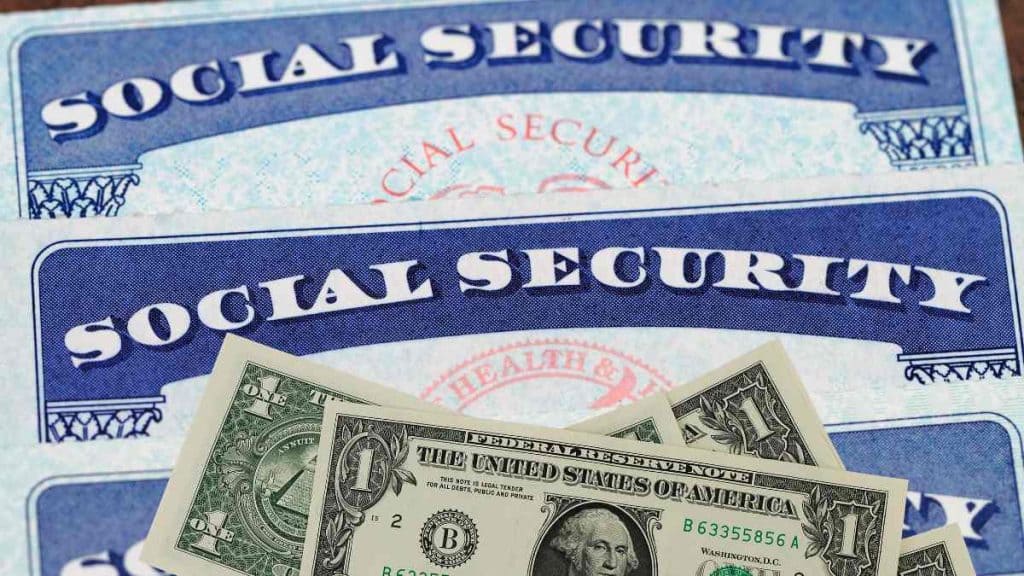
A Social Security payment worth $1,918 on average goes out in days. Some retirees will cash a new check or get a new direct deposit from the Administration shortly. Do not forget that you must meet all the conditions to qualify.
For example, the birthday requirement will be essential. If your birthday is from the 11th to the 20th, you will receive a payment on August 21. That date will not be the payday for those who also get SSI. Besides, you cannot get these benefits if you started receiving Social Security before May 1997.
Will there be a Social Security payment after August 21?
As a matter of fact, it will not be the last retirement benefit payment in August. Some retirees will only be eligible for the August 28 payday. This is because they are not on SSI, they did not get payments before May 1997 and their birthday is after the 20th of any month.
What is more, the average payment for these eligible retirees will also be $1,918. If you were receiving benefits before May 1997, your next Social Security payment will be due on September 3, 2024.
If you are a Supplemental Security Income recipient, you will receive a payment of up to $943 on August 30, 2024. Even if you collected an SSI payment on August 1, the September check or direct deposit will be ahead of schedule.
Will Social Security Disability Insurance recipients get SSDI payments on the same dates?
For your information, if you are on SSDI (Disability Insurance), the payment dates are the same as for those citizens receiving retirement benefits. The birth date requirements are just the same.
So, August 21 and August 28 can also be paydays for SSDI recipients. If you got SSDI before May 1997, you will receive your monthly payment on September 3, 2024. SSI can also be for those SSDI recipients getting money on September 3.
As for the maximum amounts for retirement benefits, direct deposits or checks can be up to $4,873. If you file at Full Retirement Age, you can receive up to $3,822 (also the largest SSDI payment in 2024). Those who choose early filing at 62 can get up to $2,710.
What are the criteria for receiving Supplemental Security Income (SSI) payments on different dates?
SSI payments are typically paid on the 1st of each month. If the 1st falls on a weekend or holiday, payments are issued on the preceding Friday.
To be eligible for SSI, you must:
- Be age 65 or older, blind, or have a disability that prevents you from working for at least 12 months
- Have limited income and resources
- Be a U.S. citizen or meet certain requirements for noncitizens
- Reside in one of the 50 states, D.C., or the Northern Mariana Islands
- Not be absent from the U.S. for a full calendar month or 30+ consecutive days
- Not be confined in a government-funded institution like a prison or hospital
The basic monthly SSI payment for 2024 is $943 for an individual and $1,415 for a couple. Actual payment amounts vary based on your income, living arrangements, and the state you live in. Some states supplement the federal SSI payment.
If you get both Social Security retirement/disability benefits (RSDI) and SSI, your Social Security is paid on the 3rd of the month and your SSI on the 1st.
If you are outside the U.S. for 30 consecutive days or more, you are not eligible for SSI for any full month you are outside the country. You must be back in the U.S. for 30 consecutive days to restart SSI.
Giving away resources or selling them below market value can make you ineligible for SSI for up to 36 months.
What is the difference between Social Security and SSI payments?
The key differences between Social Security and SSI payments are:
- Social Security benefits are based on your prior work history and the amount you paid into Social Security taxes. SSI benefits are not based on work history, but rather on financial need.
- Social Security is funded through dedicated payroll taxes (FICA and SECA). SSI is funded by general tax revenues.
- To qualify for Social Security, you must have earned enough work credits. SSI has no work credit requirements, but you must have limited income and resources.
- Social Security provides benefits to eligible family members in some cases. SSI does not provide benefits to family members.
- Social Security benefit amounts are based on your average lifetime earnings. SSI benefit amounts are based on Federal and State laws that take into account your income, living arrangements, and other factors.
- Your income generally doesn’t affect Social Security benefits. But, if you are under full retirement age or receiving disability, wages may affect benefits. SSI benefits can be reduced by other income you receive.
- Where you live or who lives with you does not affect Social Security benefits in most cases. But living arrangements can impact SSI eligibility and benefit amounts.























